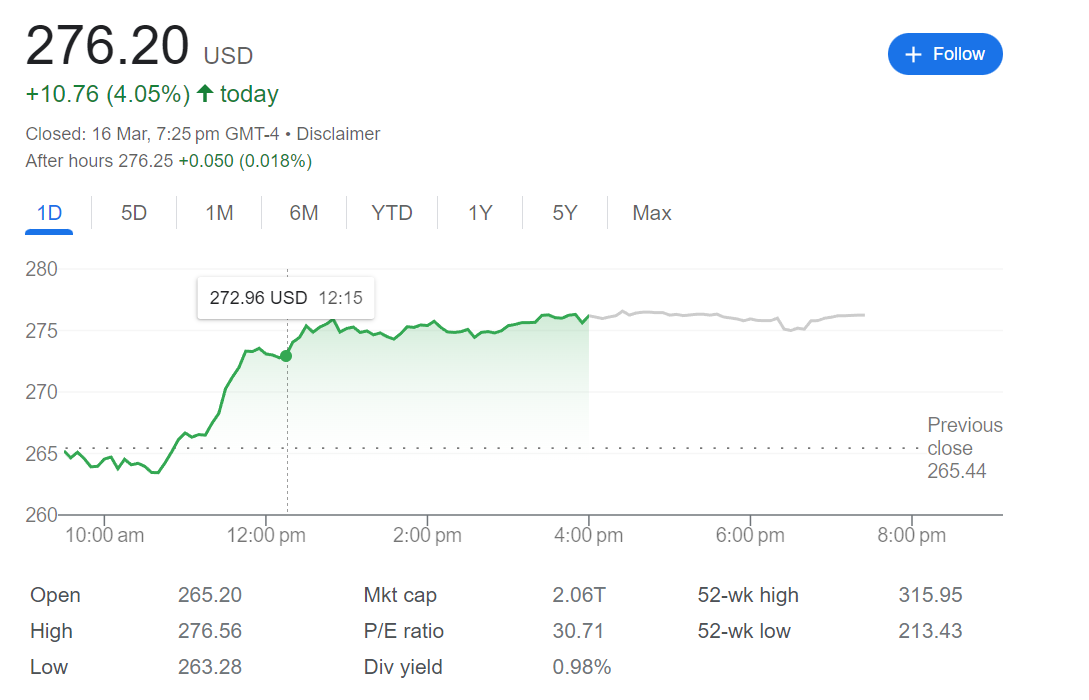Forget about a Siliccon Valley bank collapse, Artificial Intelligence will change the way we live.
OpenAI, backed by Microsoft, has fueled much of the frenzy with its ChatGPT tool, which went viral in recent months and demonstrated the power — and potential pitfalls — of chatbot technology. The startup just unveiled GPT-4, the latest iteration of the underlying software, earlier this week.
In December 2015, Sam Altman, Greg Brockman, Reid Hoffman, Jessica Livingston, Peter Thiel, Elon Musk, Olivier Grabias, Amazon Web Services, Infosys and YC Research announced the formation of OpenAI and pledged over $1 billion to the venture. The organization stated it would “freely collaborate” with other institutions and researchers by making its patents and research open to the public.
The talent grab started and and Brockman drew up a list of the best researches in the field. The best researches ranked with the best NFL players. In 2020, OpenAI announced GPT 3 a language model trained on large internet datasets. GPT-3 is aimed at natural language answering of questions, but it can also translate between languages and coherently generate improvised text. As of January 2023, OpenAI was in talks for funding that would value the company at $29 billion, double the value of the company in 2021. On January 23, 2023, Microsoft announced a new multi-year, multi-billion dollar (reported to be $10 billion) investment in Open AI.
Why does GPT4 have the cybersecurity world worried?
On February 7, 2023, Microsoft announced that it is building AI technology based on the same foundation as Chat GPT into Microsoft Bing and Office 365 and other products.
On March 14, 2023, OpenAI released GPT 4 both as an API (with a waitlist) and as a feature of ChatGPT Plus. As the latest and most advanced version of the Generative Pre-trained Transformer (GPT) system developed by OpenAI, ChatGPT is capable of text answering, content generation, language translation, and text summarisation, but at a much faster rate than previous versions.
Two threats that are of particular concern are:
- ChatGPT may enable a more sophisticated phishing approach by malicious actors.
- While ChatGPT’s parameters include security protocols to identify inappropriate requests, such as requests for instructions on how to build a bomb or write malicious code, developers have already succeeded in bypassing these protocols
What is Phising?
Phising accounts for around 90% of malware attack.1
Historically, there has been a distinction between generic phishing and spear phishing. Generic phishing takes a ‘shotgun’ approach, and works at a massive scale, sometimes sending out millions of lures in the form of emails, text messages, and social media postings. However, these lures take a ‘one size fits all’ approach, making them generic and easy to spot. The result is a very low success rate for the phisher.
In contrast, spear phishing uses social engineering to create highly targeted and customised lures. The result is a much higher yield – but because of the manual work involved in personalising the lure, spear phishing operates at a low scale.
The worry is that with ChatGPT generating lures, attackers can have the best of both worlds – the volume of generic phishing with the customisation and higher yield of spear phishing. ChatGPT can be used to generate unlimited unique variants of the same lure message and even automate it so that each phishing email is unique.
What are the investment opportunities

According to Bloomberg, Microsoft Corp.’s effort to overhaul its entire lineup with OpenAI technology has spread to one of the company’s oldest and best-known products: its Office apps.
The software, including Excel, PowerPoint, Outlook and Word, will begin using OpenAI’s new GPT-4 artificial intelligence platform, Microsoft said on Thursday. AI-powered assistants called Copilots will be able to generate whole documents, emails and slide decks from knowledge the software has gained scanning corporate files and listening to conference calls. The technology will debut in the coming months, and Microsoft is already testing it with 20 companies, including eight in the Fortune 500 that it declined to name.
Investors can gain exposure to the cybersecurity industry via the Betashares Global Cybersecurity ETF (ASX: HACK) which invests in a portfolio of the leading companies in the global cybersecurity sector.
IMPORTANT NOTICE: You are receiving this email because you have subscribed to our services in the past and you have agreed to the terms and conditions and the privacy statement on our web site. We protect and value your data and continue to send you information that is relevant and valuable. If you are interested in any product described in our newsletters then you need to read a copy of the PDS and determine for yourself if it is appropriate to your needs, circumstances and particular situation.
Anti Hawking Notice. You are receiving this newsletter bulletin because you have subscribed to our services in the past. You have subscribed to our online portal findmysuper.com.au or you were a member of a superannuation or retirement fund that Financial Choice provided advice to it’s members. You may also have registered with selfmanagedsuper.com.au.
Target Market Determination: We always advise clients to carefully consider the appropriateness of the product given their own knowledge of their financial situation, needs and objectives, or terms and conditions. You can read our Financial Services Guide on our website for information about our services, including the fees and other benefits. All information on our website is subject to change without notice. Please consult professional advice before you act on any of this general information.
General Advice Warning: The content of this newsletter is for the clients of Best Interest Advice and it’s other related services like Financial Choice, Find My Super and selfmanagedsuper.com.au.. The content is general advice only and has not considered your personal situation or objectives and cannot be relied upon. Please consult a financial adviser to provide you with personal advice. We cannot guarantee the accuracy of this information as it is sourced from third parties and general media. All attempts to verify its contents have been made and we only rely on reputable sources. Best Interest Advice AFSL 292925. Financial Choice is a business name registered to Best Interest Advice P/L. Any advice and information is provided by Best Interest Advice Pty Ltd AFSL No. 292925 and is general in nature. It hasn’t taken your financial or personal circumstances into account. It’s important to consider your particular circumstances and read the relevant product disclosure statement. Please consult our office to provide you with personal advice if you would like. To make an appointment please click on the link financialchoice.com.au





